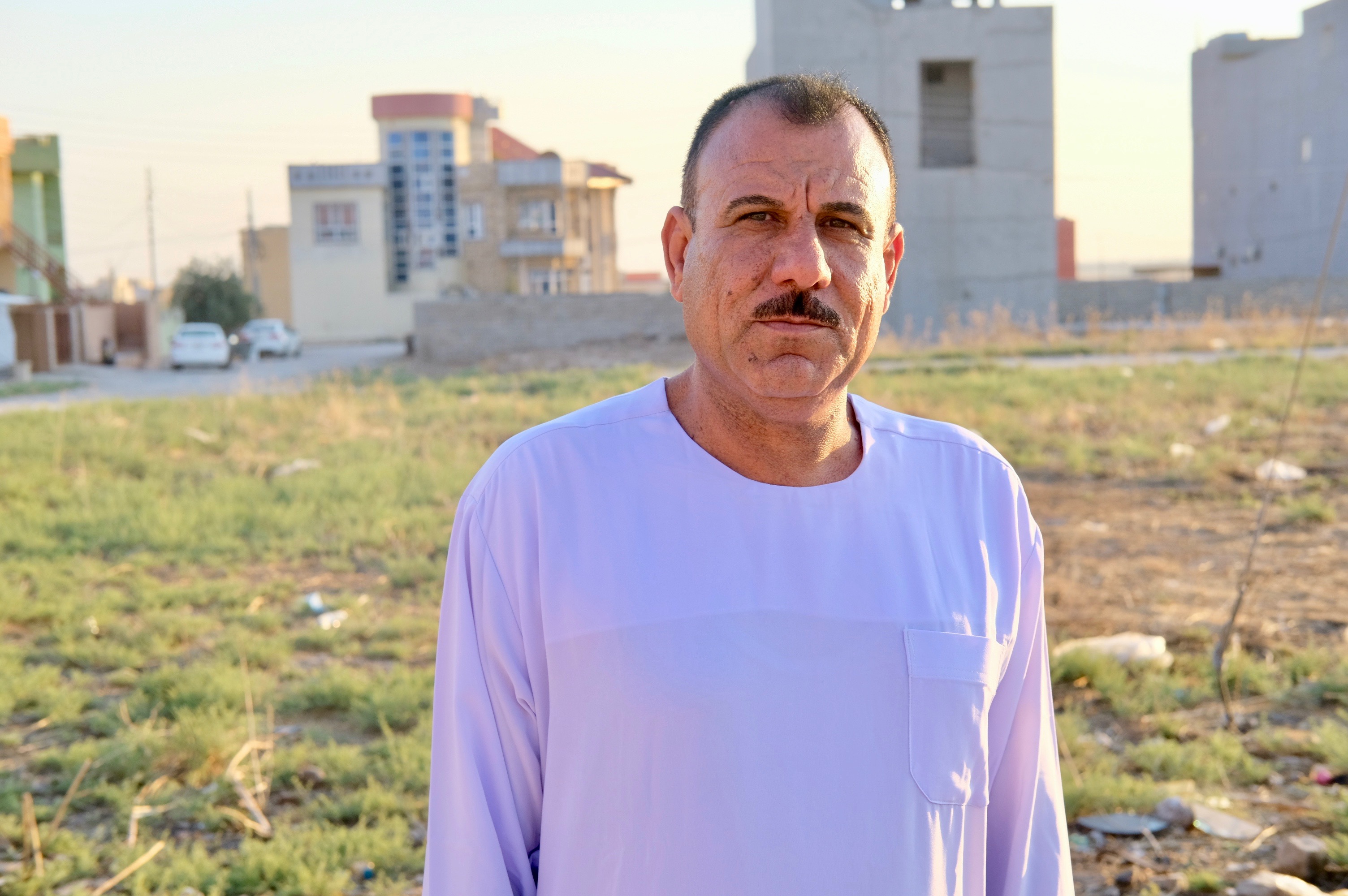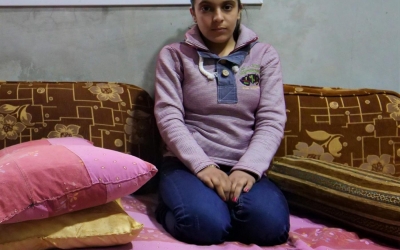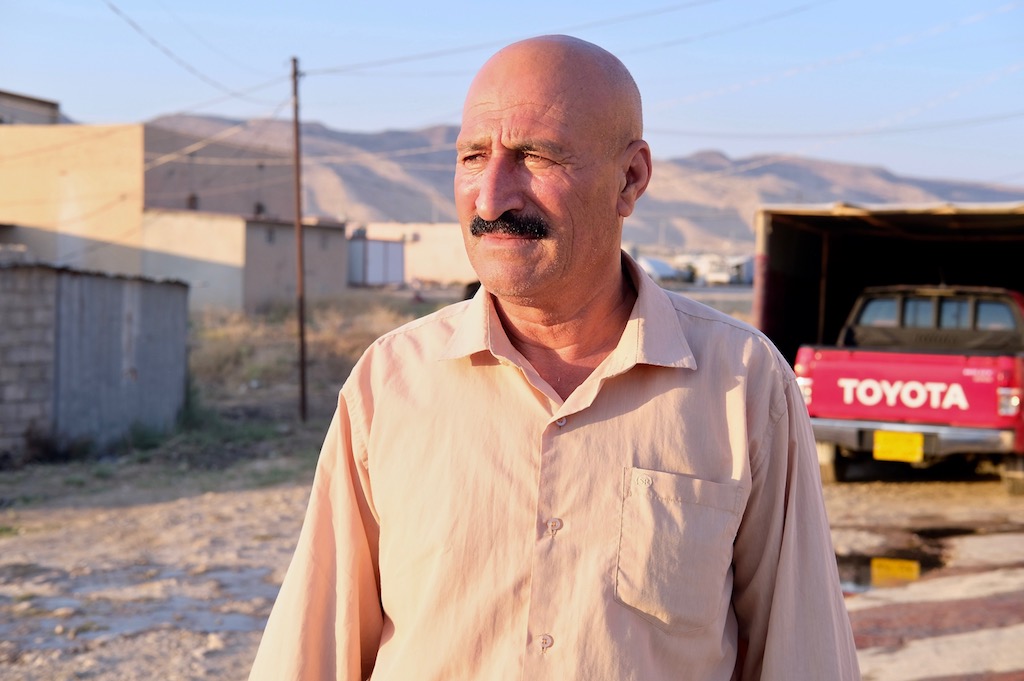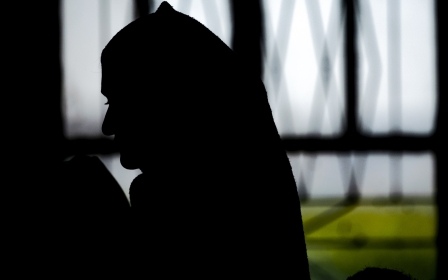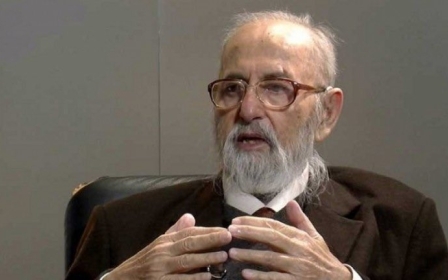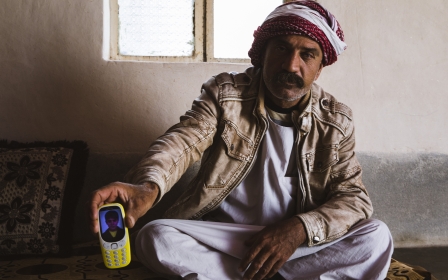Surviving Yazidi men desperate to reunite with families in Germany
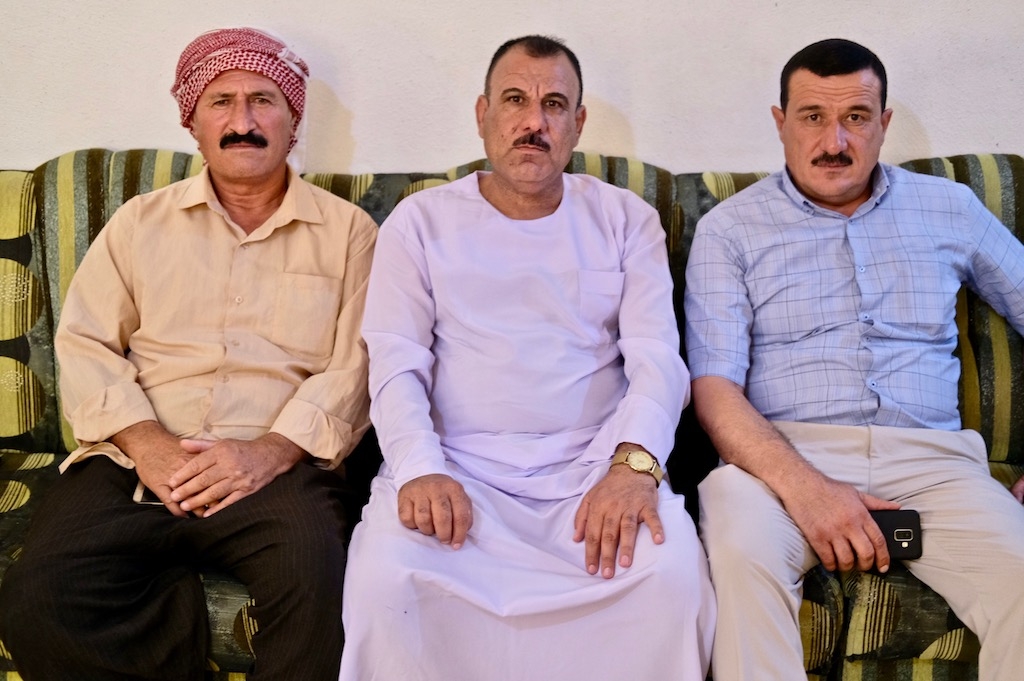
In a small home on the outskirts of a camp in northern Iraq, a group of Yazidi men are chatting animatedly while drinking freshly brewed tea. The three roommates met only a few years ago, but now function as each other’s stand-in families. Their own loved ones are thousands of kilometres away in Germany.
These Yazidi men are part of a larger group of about 30 husbands and fathers who are trying - in vain, they say - to reunite with their families in the German state of Baden-Wurttemberg.
For Marwan Jada’an, the agony of being separated from his family is a feeling he knows well. His wife Jamila and five children were among the more than 6,000 Yazidis kidnapped in August 2014 when the Islamic State (IS) group overran their ancestral homeland of Sinjar.
In what the United Nations now calls a genocide, the militant group rounded up and slaughtered thousands of Yazidi men. The women were taken as sex slaves and many of the young boys used as child soldiers.
One day 11 months after their disappearance, Marwan received an unexpected call. From Deir Ezzor in eastern Syria, Jamila managed to reach a phone while her captors were away at Friday prayers. Within a week, Marwan had tracked down their location and paid IS $18,000 to free his family members.
New MEE newsletter: Jerusalem Dispatch
Sign up to get the latest insights and analysis on Israel-Palestine, alongside Turkey Unpacked and other MEE newsletters
“I was so happy when my family called me,” Marwan said. “We spent an amazing five months together.”
But Jamila, as well as her two boys and three girls, had endured unfathomable trauma during their captivity. They all were in dire need of medical care, but, at the time, the Iraqi government and international organizations helping Yazidis weren’t providing much in the way of psychosocial support.
Then Marwan and Jamila learned of a programme run by the German state of Baden-Wurttemberg offering trauma therapy for families like theirs.
“We knew if we were in Germany our children could feel good again,” Jamila said in a message to Middle East Eye over WhatsApp.
Marwan and Jamila leapt at the opportunity to get their children out of harm’s way and into the offices of trained psychotherapists. Marwan, however, would stay behind.
“When they interviewed my family, they asked me to sign a paper saying that I won’t be able to see them for two years,” he said. “But after those two years passed, they would be able to file for me to reunite with them.”
It’s been four years, and Marwan is still waiting to see them.
Countries turn away Yazidis
Although Sinjar was liberated from IS in 2015, only a quarter of the mountainside town’s original population has returned. Basic services such as electricity and water are lacking, and landmines and booby traps still litter the area.
Displaced Yazidis also point to reports of IS-related activity in Iraq as evidence it’s not yet safe for their long-persecuted community to move home.
Despite the uncertain security situation in Sinjar, Yazidi advocates say governments around the world are rejecting Yazidi refugees on the grounds that Iraq has defeated IS and the country is stable enough for their return.
“Yazidis are facing an unknown future in Iraq and the whole Middle East,” says Ahmed Khudida Burjus, deputy executive director of advocacy group Yazda.
“It is too soon to turn Yazidi asylum seekers away.”
In Germany just 60 per cent of Yazidi asylum applications were approved in 2018, down from 85 per cent the previous year, according to German newspaper Neue Osnabrucker Zeitung.
The number of Yazidis resettled in the United States has also plummeted. According to the International Rescue Committee, just five Yazidis were accepted in 2018 compared to 445 the previous year.
Only after significant pressure from advocates did immigration authorities in the Netherlands reverse a plan to deport Yazidi asylum seekers from the country.
Pari Ibrahim, who runs the advocacy group Free Yezidi Foundation, says she’s grateful for the countries that have welcomed Yazidis. But she’s concerned about the strain caused to families when some members are granted asylum and others aren’t.
“[It’s] a difficult choice to seek a better and safer life outside but also leave some family members behind,” Ibrahim said.
Family reunions delayed in Germany
That wasn’t Mirza Dinnayi’s intention when he helped to set up the programme in Germany.
Dinnayi, a Yazidi activist and former adviser to the Iraqi president on minority affairs, met with the first group of Yazidis rescued from IS captivity. He believed resettling them in a safe country with superior healthcare offered these women the best shot at rebuilding their lives.
“Some say, it’s important to treat them inside their [home country] atmosphere. But they have no environment anymore,” said Dinnayi.
“They are living in tents.”
The German state of Baden-Wurttemberg stepped up to the plate, spending euros 45m ($50m) on a programme that would provide specialised psychotherapy for 1,100 survivors.
'It would be great for their children to be reunited. But at the moment, it’s not possible'
- Theresa Schopper, Baden-Württemberg State Minister
Beginning in March 2015, the programme provided the Yazidis with housing, financial assistance, health and psychosocial care, and free education, as well as the opportunity for participants to apply for German citizenship.
Of the roughly 500 women selected for the programme, just 33 had husbands. The rest lost their spouses to IS.
For the most part, the men weren’t ready to come to Germany, Dinnayi says. Many had family members still captive whom they would need to stay behind for. Others were still fighting IS.
But years later, those men are ready to join their families in Germany, and activists like Dinnayi warn that keeping them apart could create a new type of trauma within the community.
A 2019 study authored by Jan Kizilhan, a German-Kurdish psychologist involved in selecting the Yazidis for the programme, made the case that bringing their husbands to Germany would have a positive impact on the women’s healing process.
“It would be great for their children to be reunited,” said Baden-Württemberg State Minister Theresa Schopper. “But at the moment, it’s not possible.”
According to Schopper, who oversees her state’s humanitarian programmes in Iraq, the main issue is that, under German law, family reunifications cannot take place if the family is reliant on certain social benefits.
Most of the Yazidi women in the programme, Schopper says, are working low-paying jobs and cannot yet fully support their families.
There are also language and housing requirements, which the Yazidi men interviewed for this piece said they weren’t aware of when their wives and children agreed to relocate to Germany.
“We thought two years would go fast, and we will join them,” said Salim Hasso Khalaf. “I need them to be by my side.”
Khalaf, who spent nine months in IS captivity with his wife and four children, says he hasn’t received any updates from the German consulate in Erbil since he went for an interview in September 2018.
Schopper says her office is negotiating with local and national officials to make exceptions to the rules for certain Yazidi families, but she can’t make any guarantees.
“I think there are some cases where it will be possible, and there will be some cases where it will be really hard,” Schopper said.
Languishing in camps
A WhatsApp group has become a sort of virtual support group for the 30 or so husbands still in Iraq. There they share updates on their families, and at times, commiserate with each other.
“They should let us visit our families at least once a year. Even inmates in jail get some kind of permission to visit their families,” said Kichi A’amo Silo, one of the men in the group.
'My kids feel like they're at home. But they miss their father'
- Jamila, Yazidi mother
When asked if they would consider applying for tourist visas to at least visit their families in Germany, the men said they wouldn’t bother. The Iraqi passport, they pointed out, ranks among the weakest in the world and makes travel to European countries like Germany difficult, if not impossible.
In the meantime, Marwan keeps in touch with his family on WhatsApp on the days when there is a strong internet signal in the camp. When there is no working connection, he’ll go as many as 10 days without hearing from them.
The children have grown to love Germany, Jamila says. Their oldest son plays football and the girls have joined gymnastics and swimming teams.
“My kids feel like they're at home. But they miss their father,” said Jamila. “It’s been four years, and we need him."
Middle East Eye delivers independent and unrivalled coverage and analysis of the Middle East, North Africa and beyond. To learn more about republishing this content and the associated fees, please fill out this form. More about MEE can be found here.


